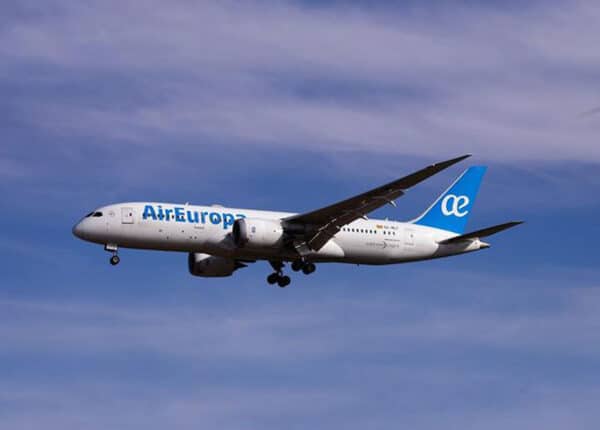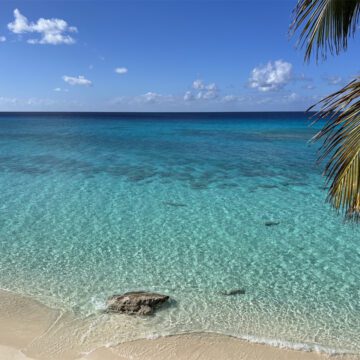How Government Aviation Taxes Negatively Impact Caribbean Tourism
The following is the text of a speech given by St Kitts and Nevis Tourism & International Transport Minister Richard Skerritt to the ICAO Plenary Session in Montreal on Wednesday.
Mr President, Mr Secretary General, fellow delegates, distinguished ladies and gentlemen, it is an honour for me as Minister of Tourism & International Transport to address this august body on behalf of the twin-island Federation of St. Kitts & Nevis, located in the warm Caribbean.
In the 6th Worldwide Air Transport Conference earlier this year, it was concluded that States and relevant international organizations need to take a broad homogenous and sustainable approach to air transport and tourism policy. As we consider the numerous challenges and opportunities facing the global community in aviation both now and in the future, and as we work to develop policy for the upcoming triennium, I would request that this Assembly takes into account the peculiar vulnerability of small island states to the negative impact that taxes on aviation can have on tourism growth.
Mr President, it has been well documented that tourism is a key driver of sustainable economic development. According to the UNWTO, world travel reached one billion international tourists for the first time last year. Over half of these tourists arrived at their destination by air, including a high proportion on long-haul flights to developing countries such as the islands of the Caribbean. Those arrivals helped to create and maintain jobs and incomes. Unfortunately, global travelers can not choose to take a bus or a train to get to the Caribbean.
Mr President, the 2013 Economic Impact Report issued by the World Travel & Tourism Council (WTTC) ranks the Caribbean as the most tourism dependent region in the world. It is number 1 in terms of the relative size of tourism’s contribution to GDP. In 2012, the total contribution from travel and tourism to the world economy represented 9.3 percent of global GDP and accounted for 1 in 11 jobs. In St. Kitts & Nevis, the total contribution of travel and tourism to our economy is 25.9 percent of GDP and it accounts for 1 in every 4 jobs. In some other Caribbean islands, tourism provides practically the only means of economic growth.
Recognizing that the development of aviation is one of the cornerstones of our tourism growth, our Government has been involved in a systematic build-out of air bridges to key international airport hubs and targeted markets, including investing in airline guarantees whenever necessary to ensure year-round service at competitively priced tickets. This airlift build-out has resulted in significant air service increases that now place St. Kitts among the Caribbean islands with the best supply of international airlift, especially for our small domestic population size.
However, no matter how smart smaller nations like St. Kitts & Nevis work to transform our economies by building air-bridges and creating tourism demand from our key source markets, the revenue-generating aviation policies of related governments are threatening to have a deleterious impact on our tourism efforts in the Caribbean.
Mr President, for example, the US Federal Government’s fiscal year 2014 budget proposal increases five aviation taxes and imposes a new departure tax which will cost airlines and their customers an additional $5.5 billion annually. According to Airlines for America (A4A), the trade organization of the principal U.S. airlines, U.S Federal taxes would then constitute 25 percent of airline ticket prices, or an average of $100 on a $400 ticket. The TSA security fee would double to $5 per leg in 2014 and increase further to $7.50 by 2019, with 60 percent of the revenue generated from the fee increase to be allotted to deficit reduction.
This comes in the face of the US Government’s recently passed Full Fare Advertising law, wherein fares quoted in airline advertising will have to include the Base Fare plus the 7.5 percent excise tax, plus all additional government-imposed taxes and fees that are collected and distributed to various government agencies. What does the consumer see? Just a higher overall fare that either causes them to demand a higher return on their total travel investment from their chosen destination, or a ticket price that limits their choice to a more affordable short-haul destination.
As stated by A4A’s President and CEO Nick Calio, (QUOTE) “The proposed U.S. budget represents an unprecedented tax grab on the backs of airlines and their customers, who already pay more than their fair share of taxes. Our fragile US economy and the millions of middle-class Americans who rely on air travel every day simply cannot afford tax increases that will drive up the cost of flying or limit service options.”(END OF QUOTE)
Meanwhile, in the UK, we have the best example of aviation taxation inequity with the Air Passenger Duty (APD), whose distance-related banding system has not only been prejudicial to nations of the Caribbean, but has sent the ratio of taxes to ticket fares to an unprecedented high. With another increase added earlier this year, the UK APD became the highest flight tax in the world. Mr President, none of the massive proceeds of the APD go to funding travel or tourism specific expenditure and the British APD is therefore the most conspicuous evidence available that international aviation is now a major source of taxation. The consequence to us in the Caribbean is that the APD banding levels now makes it harder than ever for us to compete for UK tourists when they can travel closer to home for much less.
In Europe, the inclusion of aviation in the EU emissions trading system (EU ETS), originally proposed for implementation in 2012, has been called a “blatant revenue grab” that will not be effective in reducing carbon emissions, but will simply lead to increased air fares. What is of greater concern is that it is also a jurisdictional grab, openly violating the sovereignty of other nations and treaties governing international aviation and commerce in a unilateral action that is a preemptive setback to the direction of a global scheme to reduce emissions through a sectorial approach that could be agreed upon by the international community and adopted by ICAO. It is imperative for ICAO to make progress towards a global deal to avoid the reintroduction of this tax.
Mr President, my Government is as keen as the rest of the international community to reach an equitable resolution to the complex issues surrounding carbon emissions and global warming. But it is also our hope that any means that are adopted for reducing and mitigating the effects of carbon emissions would not have a disproportionate impact on the world’s smaller developing nations, such as the island nations of the Caribbean.
Mr President, today’s tourism marketplace is truly a global one, and the smaller nations of the Caribbean region are heavily dependent on aviation to bring visitors to our shores. Considering the future increases likely to be passed through to consumers from the US aviation taxes, the continuously increasing UK APD tax, and possibly the proposed EU carbon emissions tax, it is only a matter of time before the airlines serving our region again raise fares. Further airfare increases would be certain to hurt the price-sensitive tourism and travel market, and subsequently our small vulnerable economies.
On a related matter, I ask that while we deliberate on policy issues, we bear in mind the theme of this session of the ICAO Assembly, which is “Uniting Aviation”. I also remind you of the conclusion of the World Air Transport Conference in March this year that there is a need for a broad, homogeneous and sustainable approach to air transport and tourism policy. It is in this same spirit that I would like to welcome the presence of the delegation from Chinese Taipei as invited guests at this Assembly and to use this opportunity to express the unequivocal support of the Government of St. Kitts & Nevis to Chinese Taipei in their bid for more meaningful participation in ICAO.
Mr President, in closing, allow me to re-emphasize that, in our search for environmental solutions, we must be careful to ensure that the growing imposition of aviation taxes do not work against our best efforts to grow local economies and reduce poverty. More specifically, I ask that you consider the negative impact that global policies can have on smaller more vulnerable island economies which have little or no choice but to employ tourism as a key strategy for transforming our local economies. Thank you.






